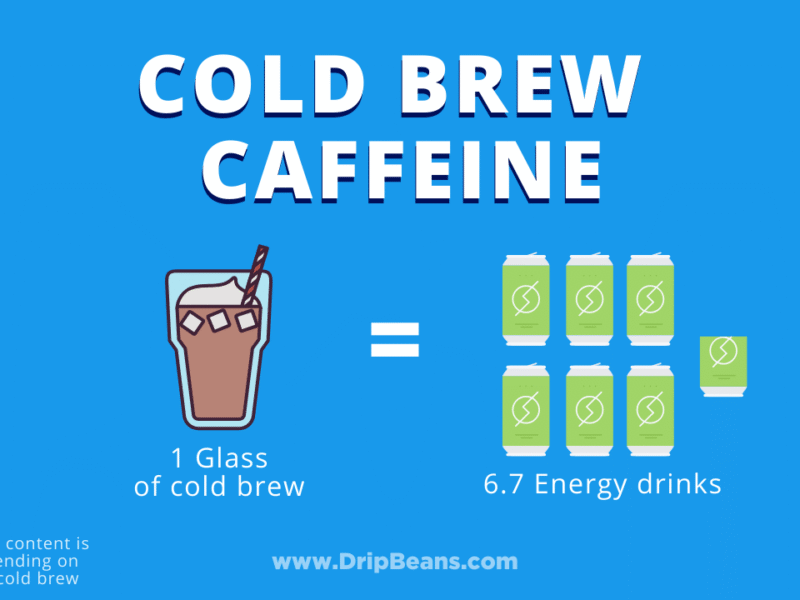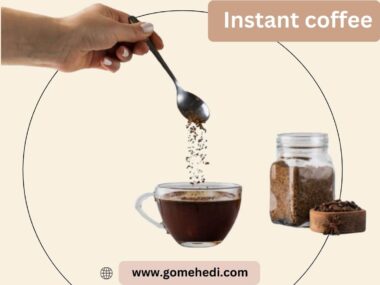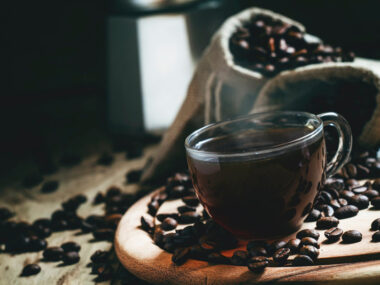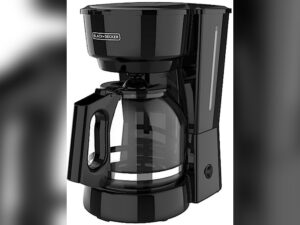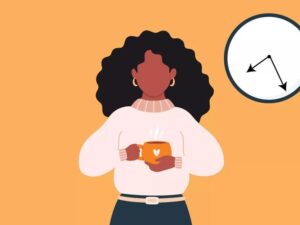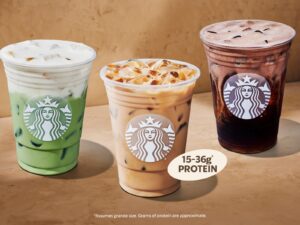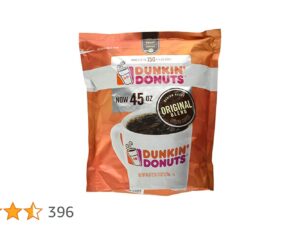Imagine starting your day with a refreshing, chilled cup of cold brew coffee. It’s smooth, delicious, and seems to give you the perfect energy boost.
But have you ever wondered how much caffeine you’re really getting in that cup? Understanding the caffeine content in your cold brew can make all the difference in managing your energy levels, staying productive, and keeping your health in check.
This article will unravel the mystery behind the caffeine in cold brew coffee. You’ll discover just how much of this potent stimulant you’re actually consuming and how it compares to other coffee types. Get ready to dive deep into your favorite coffee choice and become an expert on the caffeine that fuels your day.

Credit: savorista.com
Caffeine Content In Cold Brew
Cold brew coffee has taken the world by storm, and if you’re a coffee lover, you’ve probably tried it. One of the biggest questions that pops up is: how much caffeine does cold brew actually contain? Understanding this can help you tailor your coffee habits to meet your energy needs, or avoid the dreaded caffeine crash.
Understanding The Caffeine Levels
Cold brew is often touted for its smooth taste and lower acidity. But did you know it can also pack quite a punch in the caffeine department? This is because cold brew is typically brewed with a higher coffee-to-water ratio than regular coffee. The extended steeping time extracts more caffeine. So, if you’re sensitive to caffeine, it’s worth paying attention to how much you’re drinking.
Comparing Cold Brew To Other Coffee Types
Let’s take a look at how cold brew stacks up against other popular coffee drinks. An average cup of cold brew can have significantly more caffeine than a regular cup of drip coffee. This is due to the brewing method and concentration of the coffee used. Think about your usual caffeine intake and ask yourself if a cold brew might be a bit too much. You might want to switch it up with a lighter option on some days.
Making Cold Brew At Home: Control Your Caffeine
If you love cold brew but want to manage your caffeine intake, making it at home is a great option. You can adjust the coffee-to-water ratio to suit your preferences. Experimenting with different brewing times and coffee types can also help you find the perfect balance. Have you ever tried making cold brew at home? It’s easier than you think and gives you full control over your caffeine levels.
The Role Of Coffee Beans In Caffeine Content
The type of coffee beans you choose can also affect the caffeine content. Arabica beans generally have less caffeine compared to Robusta beans. If you prefer a milder buzz, opt for Arabica when making your cold brew. Consider how different beans affect your energy levels throughout the day. It’s a simple change that can make a big difference.
Finding Your Perfect Brew
Discovering your ideal cold brew caffeine level is like finding the perfect pair of shoes. It requires some trial and error, but once you find it, it’s worth the effort. Track how your body responds to different caffeine levels in cold brew. Reflect on whether it boosts your productivity or leaves you jittery. This insight can guide you to a brew that suits your lifestyle.
Whether you’re a seasoned cold brew enthusiast or new to this coffee trend, understanding the caffeine content can enhance your experience. Take charge of your coffee journey and discover what works best for you. What’s your favorite cold brew recipe, and how does it fit into your daily routine?
Factors Affecting Caffeine Levels
Cold brew coffee is a popular choice for caffeine enthusiasts. But not all cold brews are created equal. The caffeine levels can vary widely. Understanding the factors affecting caffeine content helps you choose the right brew. Let’s delve into what influences these levels.
Brewing Time
Brewing time plays a crucial role in caffeine extraction. Longer brewing times usually lead to higher caffeine levels. Cold brew typically steeps for 12 to 24 hours. This extended period allows more caffeine to dissolve into the water. If you’re seeking a stronger kick, opt for a longer brew.
Coffee Bean Type
The type of coffee bean impacts the caffeine content significantly. Arabica beans have less caffeine compared to robusta beans. Robusta is often used for a stronger caffeine punch. Choosing the right bean type can tailor your caffeine intake. Consider your preference for flavor and strength.
Water To Coffee Ratio
Water to coffee ratio is another key factor. A higher coffee ratio results in more caffeine. Cold brew often uses a 1:4 or 1:5 ratio. Altering this ratio adjusts the caffeine content. More coffee means more caffeine extraction. It’s a simple tweak that can make a big difference.
Comparing Cold Brew To Other Coffee Types
Cold brew coffee packs a punch with its caffeine content. Often stronger than traditional brews, it provides a smoother taste. Cold brewing extracts more caffeine, making it a favorite for those seeking an energizing kick.
Comparing Cold Brew to Other Coffee Types When you’re choosing your caffeine fix, it’s essential to know how different coffee types stack up. Cold brew coffee has gained popularity, but how does its caffeine content compare to other options? Let’s dive into the details and see where cold brew stands against hot coffee and espresso.Cold Brew Vs. Hot Coffee
Cold brew coffee is known for its smooth, mellow flavor, but does it pack the same caffeine punch as your morning cup of hot coffee? Surprisingly, cold brew typically contains more caffeine. This is because it’s brewed with a higher coffee-to-water ratio and steeped for an extended period, extracting more caffeine from the beans. Hot coffee, on the other hand, is brewed quickly with hot water. The heat extracts caffeine efficiently but not as extensively as cold brew. If you find yourself reaching for that second cup of hot coffee, perhaps try switching to cold brew for a stronger jolt.Cold Brew Vs. Espresso
Espresso is often considered the heavyweight champion of caffeine. It’s concentrated, bold, and served in small, potent shots. Does cold brew stand a chance in this caffeine showdown? Surprisingly, yes, it does. While espresso is packed with caffeine in a small volume, cold brew can contain a similar amount of caffeine in a larger serving. This means you might enjoy a refreshing, chilled glass of cold brew without missing out on the caffeine you crave from your espresso shots. Have you ever considered how your choice of coffee might affect your day? Next time, think about whether you want the smooth, sustained energy from cold brew or the quick, intense boost from espresso. Your decision might just change your daily routine.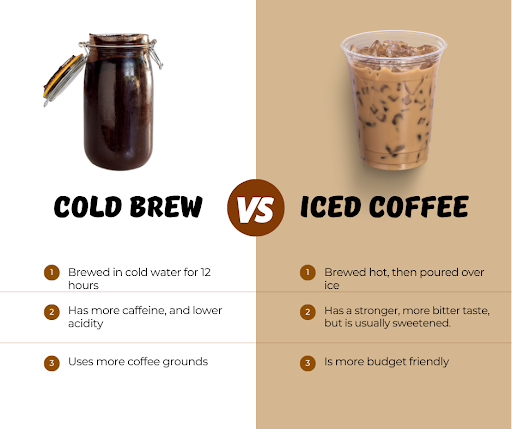
Credit: mortadellahead.com
Health Implications Of Caffeine
Caffeine in cold brew coffee can be a double-edged sword. It’s a beloved stimulant, energizing your mornings and fueling your late-night study sessions. But what does it really mean for your health?
Benefits Of Caffeine
Let’s start with the positives. Caffeine can help you stay alert and focused. It’s a natural performance booster, especially when you’re running low on sleep.
Some studies suggest it might even improve your memory and learning abilities. Imagine acing that exam because your morning cold brew had your back!
In moderation, caffeine can also support your metabolism. It might give your weight loss efforts a little nudge.
Potential Side Effects
But it’s not all sunshine and rainbows. Too much caffeine can lead to jitteriness. Have you ever felt your heart racing after a few too many cups?
It might disrupt your sleep, leaving you tossing and turning at night. Sleep is crucial for your health, so this is something to watch out for.
Some people report feeling anxious after consuming caffeine. Could that extra cup of cold brew be heightening your stress levels?
So, how do you balance these effects? Are the benefits worth the potential drawbacks? Your body’s response to caffeine is unique, so it’s essential to listen to what it tells you.
Tips For Managing Caffeine Intake
Cold brew coffee is popular for its smooth taste and high caffeine content. Managing caffeine intake is essential for health and well-being. Understanding how to moderate and find alternatives can help. This ensures you enjoy your coffee without overdoing it.
Moderation Strategies
Start by knowing your caffeine limits. Everyone’s tolerance is different. Track your daily caffeine consumption. This includes all beverages and foods with caffeine. Use smaller servings to reduce intake. Opt for a smaller cup instead of a large one. Dilute your cold brew with water or milk. This reduces caffeine concentration. Spread caffeine intake throughout the day. Avoid drinking all your caffeine in one go.
Alternative Options
Try decaffeinated cold brew coffee. It offers the same rich taste with less caffeine. Herbal teas can be a refreshing choice. They are naturally caffeine-free. Consider switching to green tea. It has less caffeine than cold brew. Try mixing cold brew with herbal teas. This creates unique flavors with lower caffeine. Experiment with other beverages like smoothies. They are nutritious and caffeine-free.
Making Cold Brew At Home
Crafting cold brew coffee at home offers control over flavor and strength. Enjoy a refreshing, smooth drink tailored to your taste. This guide walks you through the process, ensuring a delightful homemade brew.
Choosing Ingredients
Select high-quality coffee beans for the best flavor. Medium to coarse grind works well. Opt for filtered water to enhance taste. Fresh beans yield a richer brew. Try different bean types for unique flavors.
Step-by-step Guide
Start with a clean jar or pitcher. Add coffee grounds to the container. Use a ratio of one cup coffee to four cups water. Pour water over the grounds slowly. Stir gently to ensure all grounds are wet.
Cover the container and let it sit. Steep the mixture for 12 to 24 hours. Longer steeping gives a stronger flavor. Strain the mixture using a fine mesh sieve. Or use a coffee filter for a clearer brew.
Store the cold brew in the fridge. Use a sealed container to maintain freshness. Serve over ice, or dilute with water or milk. Adjust strength to your preference. Enjoy your homemade cold brew coffee.

Credit: dripbeans.com
Frequently Asked Questions
Is Cold Brew Coffee Stronger In Caffeine?
Cold brew coffee often has more caffeine than regular coffee. Its brewing process extracts more caffeine from the beans. The caffeine content can vary based on bean type and brew time. Cold brew is typically smoother, making it feel less strong despite higher caffeine levels.
How Much Caffeine Is In A 12 Oz Cold Brew Coffee?
A 12 oz cold brew coffee typically contains 150-240 mg of caffeine. The exact amount can vary by brand and brewing method. Cold brew generally has more caffeine than regular coffee due to its concentrated nature. Always check labels for precise caffeine content.
How Much Caffeine Is In Cold Brew Coffee?
Cold brew coffee typically contains more caffeine than regular coffee. Depending on the brewing method, it can have 100-200 mg per serving. Cold brew is usually brewed with a higher coffee-to-water ratio, resulting in a stronger concentrate.
Does Cold Brew Have More Caffeine Than Espresso?
Cold brew often has more caffeine than espresso. A typical espresso shot has about 63 mg of caffeine. Cold brew concentrate can have significantly more, depending on the brewing process. However, once diluted, cold brew caffeine levels can be similar to regular coffee.
Conclusion
Cold brew coffee offers a smooth, rich flavor. Its caffeine content varies. Different factors affect the caffeine level. These include brew time and coffee-to-water ratio. Generally, cold brew has more caffeine than regular coffee. This can boost energy levels. But be mindful of your intake.
Too much caffeine may cause jitters or insomnia. Experiment to find your perfect balance. Enjoy the refreshing taste without overdoing it. Cold brew is a great choice for coffee lovers. Whether you seek a morning lift or an afternoon delight, it’s a delicious option.
